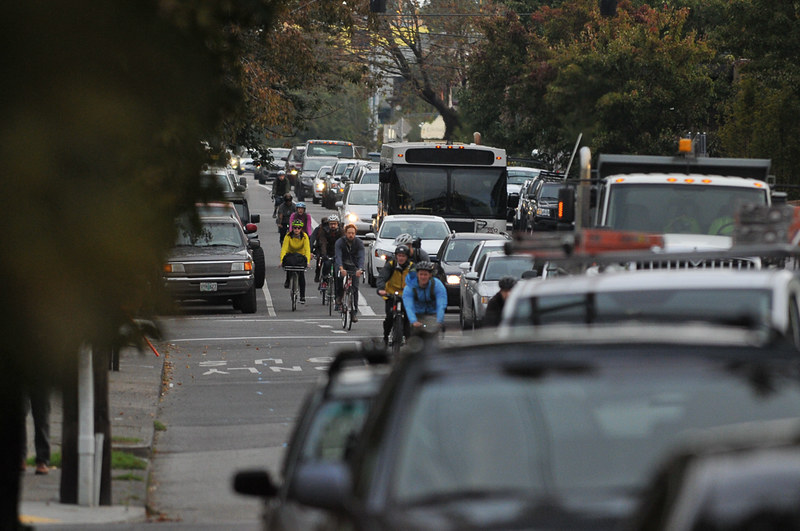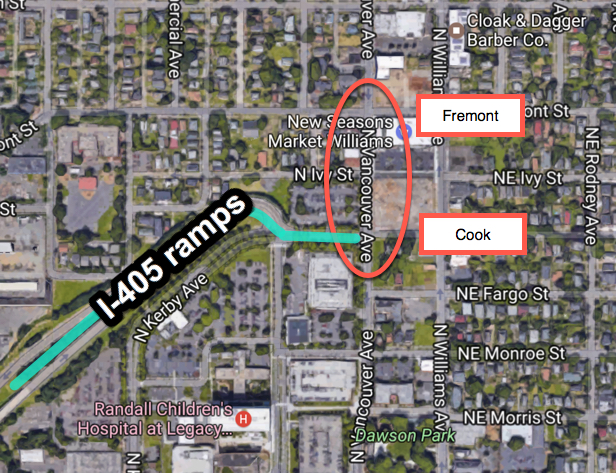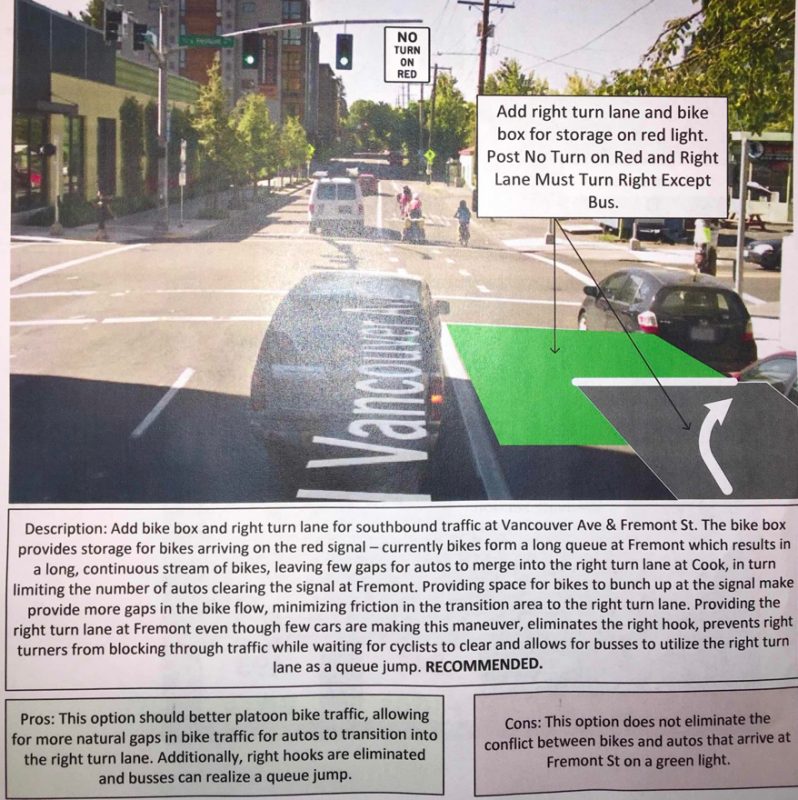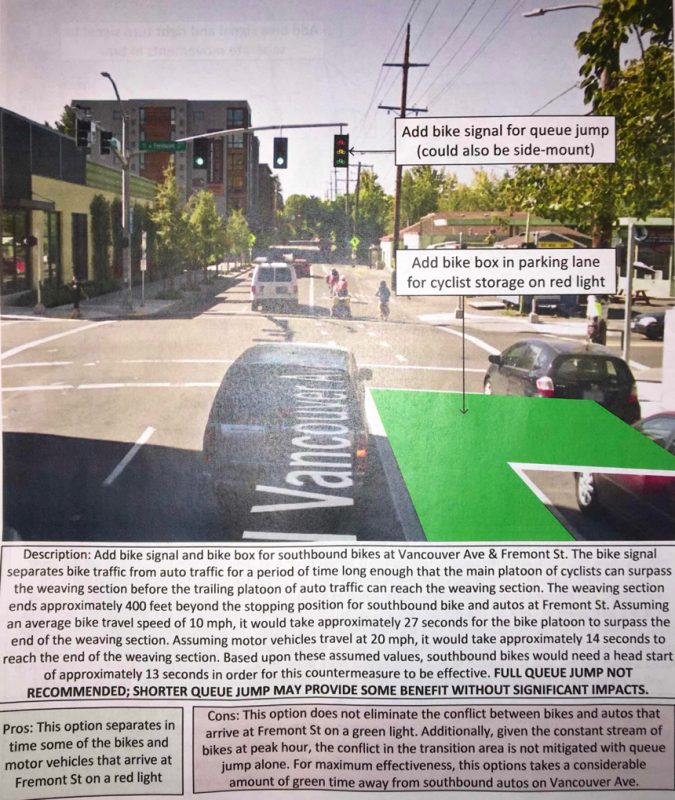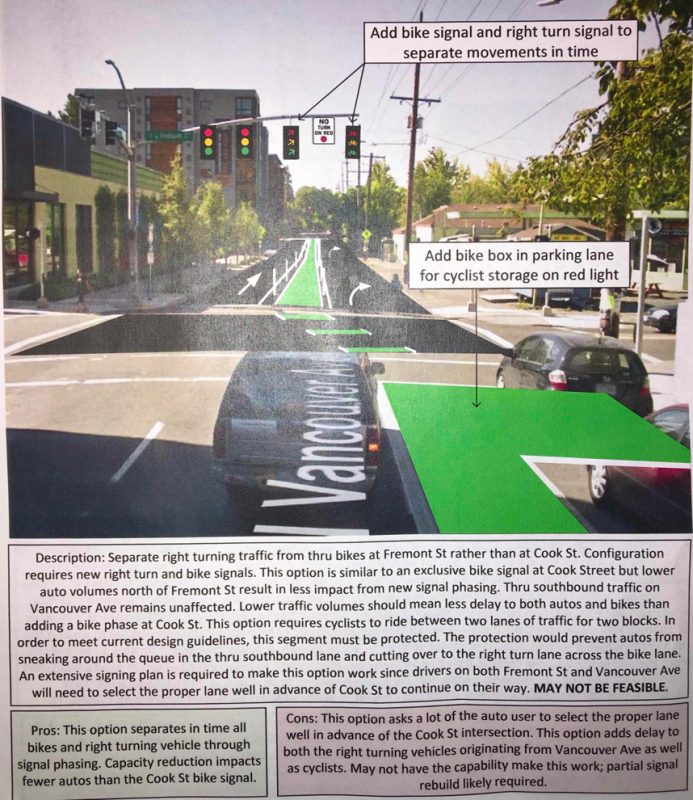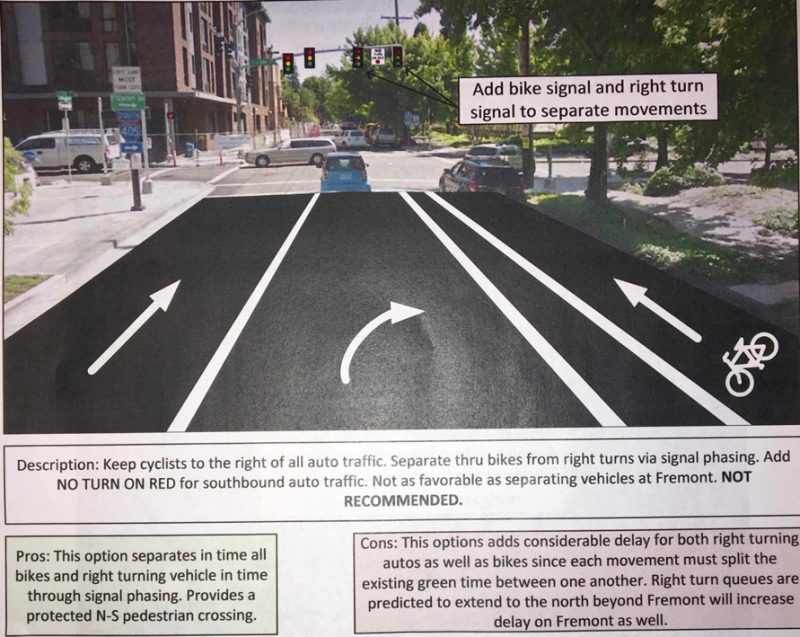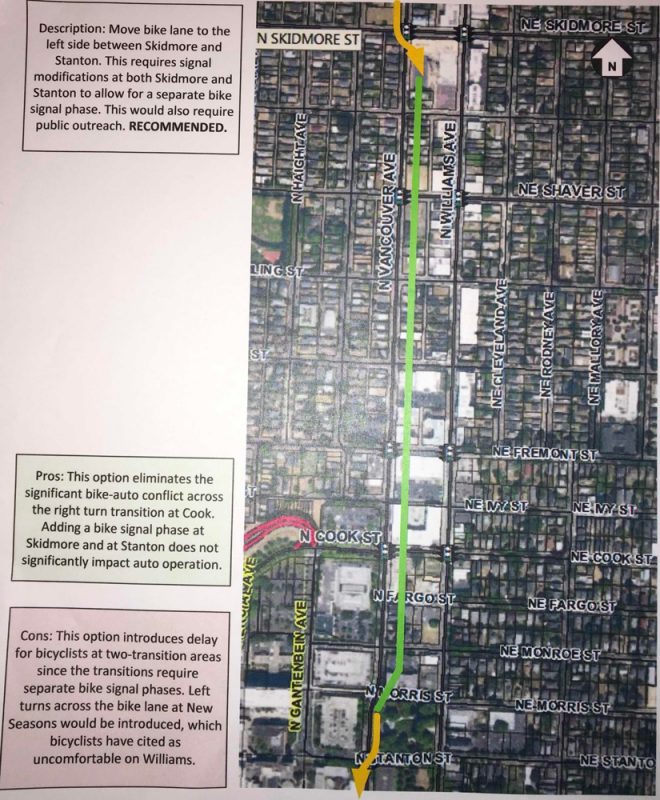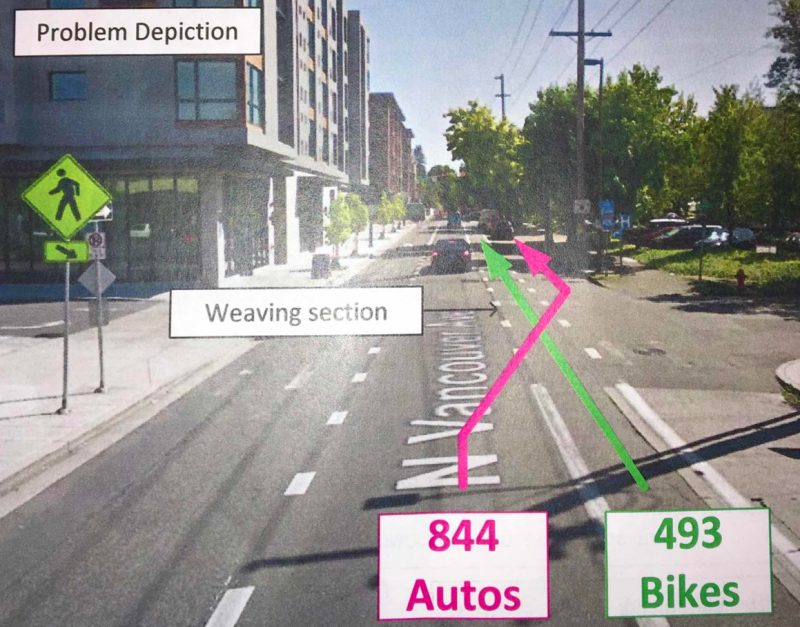
(Graphics: PBOT)
“We’ve been talking about this for three years now and we feel like it’s time to pull the trigger.”
— Wendy Cawley, PBOT traffic engineer
North Vancouver Avenue is one of Portland’s busiest — and most popular — bikeways. It serves as one side of the north-south couplet with Williams Avenue. And similar to Williams prior to its major redesign three years ago, Vancouver’s outdated road design has led to concerns about bike safety.
The Portland Bureau of Transportation revealed at the city’s monthly Bicycle Advisory Committee (BAC) meeting last night that they want to fix one section in particular: A tricky weave between Fremont and Cook. This is the block that includes; traffic from New Seasons Market, a busy bus stop, a new multi-level apartment and retail building, and traffic from ramps onto Interstate 405 at the Fremont Bridge.
At last night’s meeting PBOT staff presented the issue and asked for feedback on several options for how to make it better. Here’s how they described the problem:
“Due to exceptionally high volumes of through cyclists and right turning vehicles, the existing weaving section on N Vancouver Ave approaching Cook St does not work smoothly. Available data for the segment show approximately 500 through southbound cyclists on N Vancouver Ave conflicting with approcimately 850 motor vehicles attempting to turn right onto Cook St. This location has been thew subject of several complaints over the years, especially from cyclists.”
DMV data shows two collisions in this location between 2010 and 2014 where an auto user collided with a bicycle user in a “sideswipe overtaking” collision. (Keep in mind DMV data is not representative of all collisions and many go unreported.)
PBOT Engineer Wendy Cawley and Bicycle Coordinator Roger Geller both acknowledged last night that this block of Vancouver has been on their radar for a long time.
“It’s been a vexing problem for us,” Geller said. “We’ve taken runs at it through the years without doing anything… We need to figure out how do we fix this problem.”
Cawley said, “We’ve been talking about this for three years now and we feel like it’s time to pull the trigger.”
They presented six options last night. Each one came with a graphic, a description and a comparison of pros and cons. They ranged in price from $10,000 to $200,000. Cawley said PBOT Director Leah Treat has all but promised she has $50,000 ready-to-go for whatever option is chosen. More funding is possible if a strong case for its benefits can be made.
Here are the six options presented last night. As you peruse them, please keep these points in mind:
- PBOT shared them soley to provide a window into their thinking in hopes of getting productive feedback.
- These are not official plans and they haven’t been vetted with partner agencies and neighborhoods.
- The mid-block bus stop (on west side of Vancouver) is used by 11 buses per hour in the AM peak.
- One option discussed by committee members and PBOT staff was to work with TriMet to move the bus stop further south.
- Geller said, “There are no silver bullets and there are tradeoffs with all the options.”
- Cawley said, “We’re looking for ways to try and either eliminate the weave or minimize and separate cars and bikes being in the same space at the same time.”
- During the AM peak hour PBOT counted 844 drivers merging over to go right on Cook and 493 bicycle users going straight.
- In a separate planning excercise, PBOT is working with TriMet to improve bus service on this street. At last night’s meeting it was clear that the bike planners and transit planners weren’t in contact yet.
Here are the options (I’ll let PBOT’s graphics do most of the talking):
1) Bike Box & Right Turn Lane at Vancouver and Fremont – Estimated cost $10,000
Advertisement
2) Bike Queue Jump at Vancouver and Fremont – Estimated cost $50,000
3) Split Signal Phase at Vancouver and Fremont – Estimated cost $100,000
4) Bike Signal at Vancouver and Cook – Estimated cost $50,000
Cawley mentioned that addiong a bicycle-only phase to the signal would add a 90 second delay for auto users and would increase the auto back-up by 400 feet.
5) Prohibit and Divert Right Turns from Vancouver to Cook – Estimated cost $100,000+
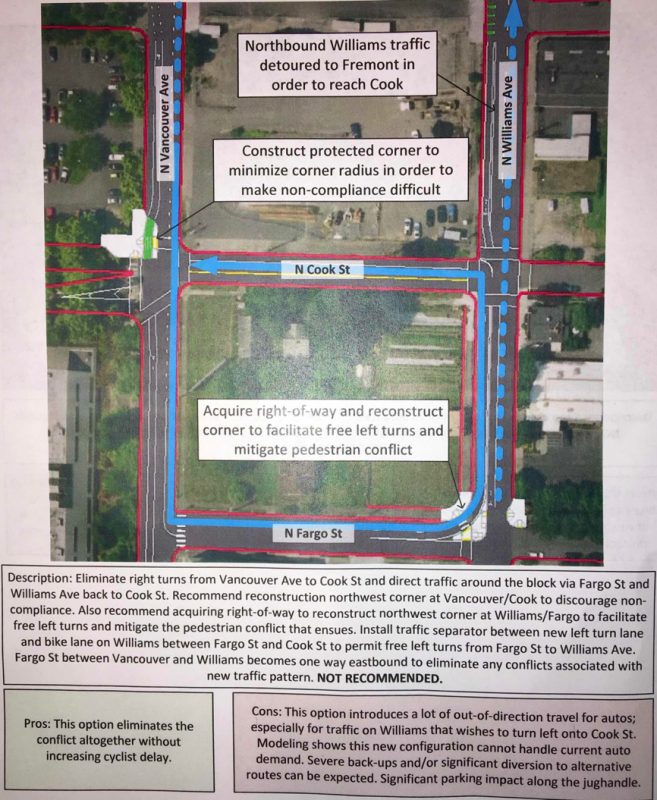
This is similar to the I-405 exit and transition to NW Glisan in downtown Portland. The vibe at the meeting was that there’s no way PBOT would move forward with this. They shared it only as a brainstorm to let people know some of the ideas they’ve considered.
6) Move Bike Lane to the Left Side from Skidmore to Stanton – Estimated cost $200,000
This was the most highly regarded option from committee members (and note that it’s “Recommended” by PBOT as well). Discussion revolved around what intersections would work best for transitioning bicycle users from the right to the left and then back again. While paint striping is cheap, the cost reflects the need to add bike-only signals at those transition points to get bicycle users across traffic to the other side of the street. Another important thing is the scope of this option. Because of how how large it is geographically (relative to the other options), this would require more of a public outreach process. And the memories from Williams Avenue — which started in much the same way — are still fresh in many peoples’ minds.
At the end of the BAC meeting last night, committee Chair Rithy Khut expressed some frustration around PBOT’s discomfort with options that would cause increased delays for auto users. “In the end, if we’re talking about safety and Vision Zero, it makes sense to add signals and just make cars wait,” Khut said. “If we’re prioritizing safety we’d signalize it and add delay. That would ensure everyone knows what they’re supposed to be doing and there would be no ambiguity.” Khut also said the bus stop could stay if it were redesigned as a “floating bus island” with the bike lane maintained curbside.
Another idea discussed (but not seriously) was to simply close the I-405 ramps at Cook. This entire problem exists because there are simply too many people driving and the on-ramp/off-ramp is a major destination.
Do you ride this section of Vancouver? What do you think about these ideas?
— Jonathan Maus: (503) 706-8804, @jonathan_maus on Twitter and jonathan@bikeportland.org
BikePortland is supported by the community (that means you!). Please become a subscriber or make a donation today.

